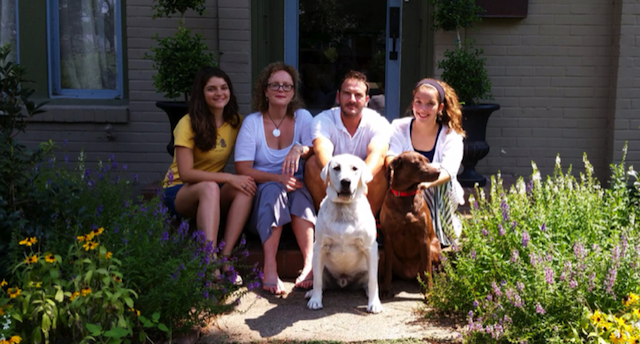
A Happy Family
In graduate school I learned a lot about assessments. Psychological researchers are great at designing tools that allow us to gauge just about anything relevant to being human. One of the more interesting tools I came across was an assessment to measure healthy family functioning. It was broken down into 26 elements and the manual provided a thorough understanding of each measure. I remember being fascinated with how valuable this information was in consideration of the characteristics one would want to nurture to maximize overall family health. If you want to view a modified checklist I created from this work click here.
A few years ago my husband decided to make a career change. The catch was, that to break into this new industry, he was going to be taking a job that required he live away from home long periods of time with no predictable schedule. He presented the argument that we are a strong family and we can get through this for a couple of years and we would all benefit from the opportunities that this career change would hold. My daughters and I decided to support his direction.
He has been in the field for 2 1/2 years now. During this time I have found myself challenged with the ideas and beliefs I had about what our family needed to look like to be healthy. A husband / dad who lives away from home about 75% of the time was a hard concept to swallow, so, at first I didn’t. I fought it in so many ways. I held the belief that his absence from our family somehow meant we were not ok. The longer he was gone the stronger my beliefs became that the circumstance of our family would not bode well on any assessment of healthy family functioning and I was definitely not happy. I found evidence everywhere I looked that this situation was not good for our family, my best piece being that we do not know any other family’s that are living like this so therefore this must be a really bad situation.
During this period I was working on becoming certified as a life coach and was starting to do a lot of self-coaching. The coaching model presents that it is not our circumstances which result in our emotional experience, but rather the meaning that we assign to our circumstances. This is similar to Cognitive Behavioral Therapy in that the primary area we can focus on to create desired change in our lives is how and what we choose to think. Learning how to identify and clean up thoughts that aren’t working for us and establish patterns of thinking that result in greater happiness is a game changer.
Once I began to question why I had chosen to think about our family circumstance in a way that resulted in so much pain, I was able to see how my belief system of what elements were necessary for me to be happy about my family were simply thoughts I was being inflexible with. Just this awareness gave room for a reevaluation of other possible ways to view my husbands work circumstances. Nowhere in the assessment of healthy family functioning did it specify how much time we all needed to be home. Shifting my focus towards what is healthy in our family and directing my resources to areas I can impact in our current circumstance has allowed me to better appreciate our lives. It is incredible to me every time I apply the coaching model to the parts of my life that I struggle with, I find relief.
I picked out a few of the healthy family functioning elements that I believe my family is strong in to find evidence for supporting the belief that my family is healthy:
- We have a strong sense of team spirit.
- We have a great respect for each other as individuals.
- We have a joint value of health & a love of cooking and eating healthy meals together.
If you reviewed the Elements of Healthy Families checklist, what stood out to you?
What beliefs about your family make you happy?
Are there any beliefs creating pain?
Try working a model to see if you can make any shifts.
Feel free to email me with questions if you get stuck!

